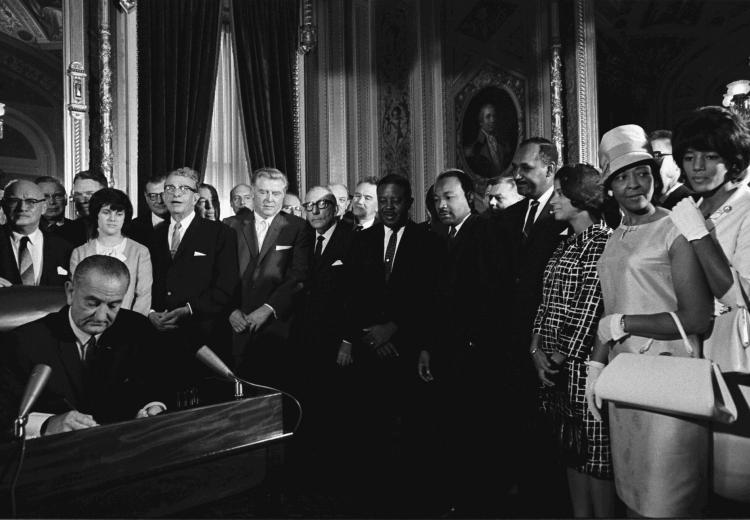Media Resource
Backstory: Give Us the Ballot from "LBJ and the Great Society"

Photo caption
President Lyndon B. Johnson signs the Voting Rights Act of 1965 while Dr. Martin Luther King, Jr. and others look on.
This episode of Backstory recounts the turbulent history of the 1965 Voting Rights Act. Listeners will hear about why and how President Johnson joined the battle for Voting Rights and his precarious alliance with Dr. King and the civil rights movement. Each segment below contains a set of comprehension questions to guide listening, as well as resources.
A full transcript of the episode is available at the Backstory website.
Audio file
Introduction (1:28-12:00)
Small Steps (12:05-20:25)
The Life-and-Death Issue (20:30-27:10)
We Shall Overcome (27:10-48:22)
